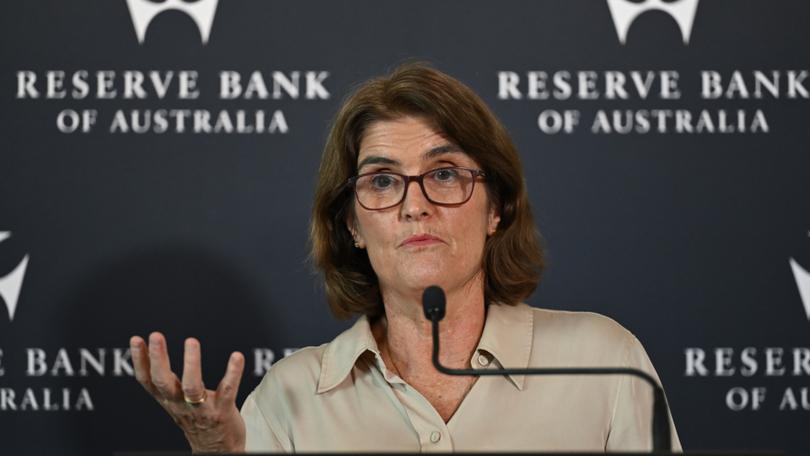Inflation steady at 3.4pc in February but experts say Reserve Bank won’t yet take hand off rate rise lever
The latest price hike figures have underscored concerns of the Reserve Bank that getting inflation lower will be bumpy, and experts say rates could stay higher for longer.

The latest inflation data has underscored the Reserve Bank’s concerns about the state of the economy and that path back to its target will not be smooth.
Some experts suggested this may imperil hopes for an interest rate cut, and leave the RBA on hold for longer.
The overall inflation rate was steady at 3.4 per cent in the year to February, for the third successive month. But the RBA’s preferred measure — known as “trimmed mean” inflation as it balances price hikes — increased to 3.9 per cent.
Sign up to The Nightly's newsletters.
Get the first look at the digital newspaper, curated daily stories and breaking headlines delivered to your inbox.
By continuing you agree to our Terms and Privacy Policy.“The Reserve Bank won’t be taking the hand off the interest rate rise lever just yet but would need to see another couple of disappointing months of data to warrant a rate increase,” Canstar financial services group executive Steve Mickenbecker said.
KPMG chief economist Brendan Rynne added: “The RBA will most likely sit on its hands for the next couple of meetings as it continues to assess the ideal timing for starting to ease the cash rate from current contractionary settings.”
The Australian Bureau of Statistics reported price hikes lost pace in all food categories, while holiday travel and accommodation prices fell 1.3 per cent in the year to February.
“Although Taylor Swift performances saw hotel prices rise in Sydney and Melbourne, elsewhere accommodation and airfare prices fell in February due to the end of the peak travel during the January school holiday period,” its head of prices statistics Michelle Marquardt said.
The biggest contributors to the annual rise in February were housing, food and drinks, alcohol and tobacco and insurance and financial services.
EY chief economist Cherelle Murphy said: “It’s doubtful Taylor Swift knows it, but she helped even out a bit of the seasonality in the Australian economy last month.”
“Activity ramped up in Sydney and Melbourne in February – a month normally associated with sobriety and schoolbooks, not sequins and short stays,” she said.
The data also shows price rises for electricity have eased as rebates remain in place, up 0.3 per cent. Without them, prices would have risen 14.9 per cent in the year to February.
The Reserve Bank is targeting an inflation range of between 2 and 3 per cent and has been increasing interest rates to push it back there. Inflation peaked at the end of 2022 at nearly 8 per cent, a three decade high.
Betashares chief economist David Bassanese was more measured about potential impacts for the RBA, saying it was still too early to know based on the limited information available in the monthly inflation data whether the rate was trending faster or slower than expected.
“There was nothing too shocking in today’s report to suggest we’re not still on track to meet these RBA expectations,” he said.
“With a likely gradual easing in labour market strength this year, based on forward labour demand indicators such as job ads, I still anticipate two RBA rate cuts by Christmas.”
AMP deputy chief economist Diana Mousina still expects rate cuts in June, with a chance it may be delayed to cAugust.
“The RBA has been looking for confirmation that inflation is headed to be comfortably within the RBA’s 2 to 3 per cent target band,” she said.
“The full set of the March quarter inflation data should provide the RBA the comfort that this is the case and therefore provide scope for the central bank to start cutting interest rates.”
Originally published on The West Australian
